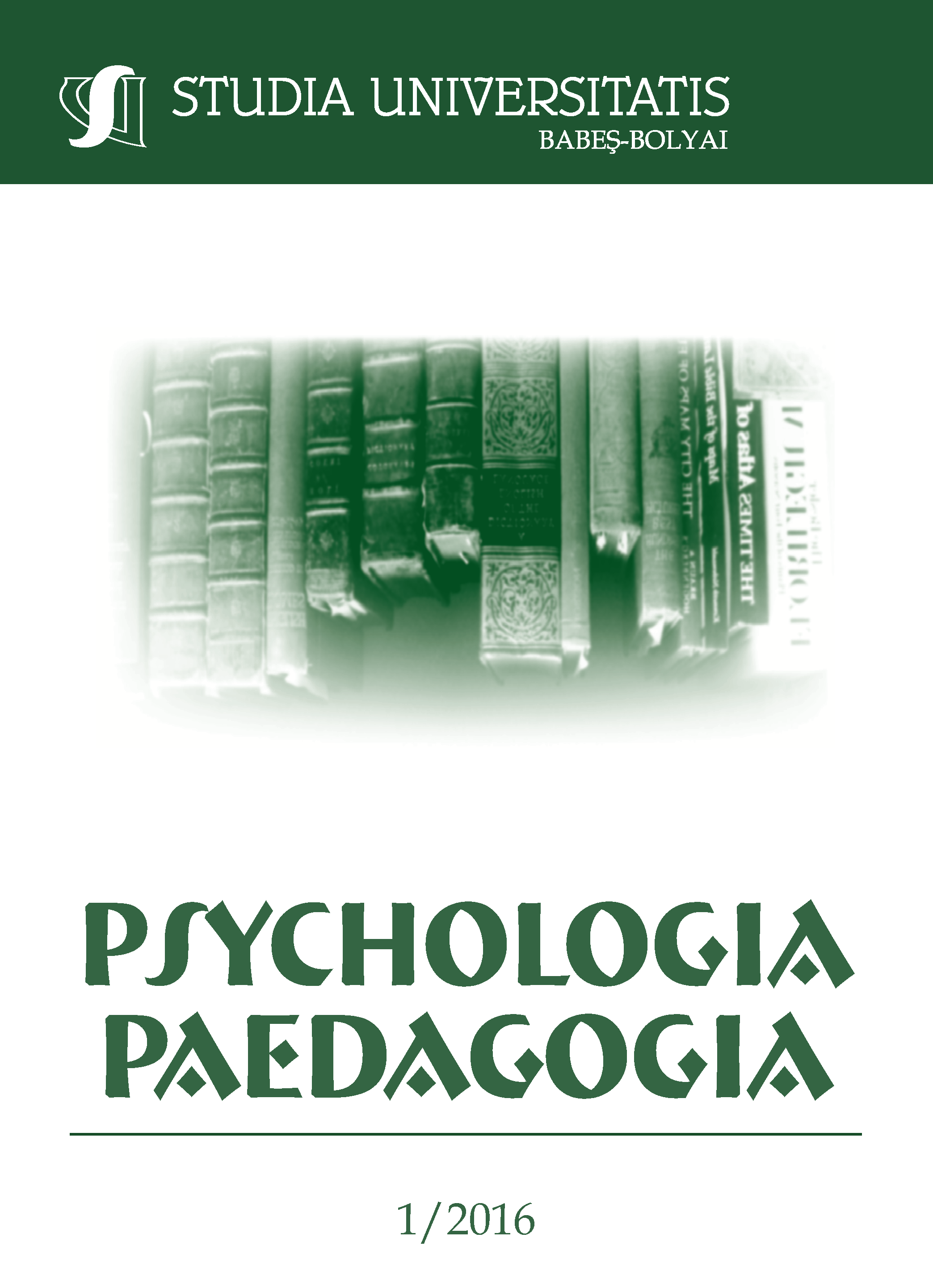THE INDIVIDUAL STUDY – A TRANSVERSAL COMPETENCY OF STUDENTS. AN OBSERVATIONAL STUDY
Keywords:
individual study, competency, students, methods of individual study.Abstract
In the present study we have defined individual study as being a transversal competency that implies an individual strategy for collecting data from various sources (notes, bibliography, textbook, dictionaries, compendiums, Internet, etc.), comprehending it, organizing and systematizing it, independently issuing hypotheses and their validation or invalidation through a personal self‑imposed effort of a cognitive and metacognitive nature. We have undertaken a research effort in order to establish the importance accorded by students to the individual study, the extent to which the students possess information on the planning, organizing, and the development of the self‑study; the methods (modalities) of implementing the self‑study, the strategies for individual studying used by students, the modalities of taking notes, identifying the ways in which they study individually.
Zusammenfassung. In dieser Studie haben wir das Selbststudium als Querschnittskompetenz definiert. Diese benötigt eine eigene Strategie für das Sammeln von Informationen aus verschiedenen Quellen (Notizen, Bibliographie, Handbuch, Wörterbücher, Kompendien, Internet usw.), das Verständnis, die Organisation und die Systematisierung von diesen, unabhängige Formulierung von Hypothesen, deren Bestätigung oder Ungültigkeit auf der Basis von persönlicher, selbst angenommener, kognitiver und metakognitiver Anstrengung zu etablieren. Wir haben eine Aktion durchgeführt, um uns über die Bedeutung von Selbststudium bei Studenten zu informieren. Wir wollten erfahren, inwieweit besitzen die Studenten Informationen über die Planung, die Organisation und die Durchührung des Selbststudiums, als auch über die Methoden (Wege) verwendet für Selbststudium. Wir stellten uns vor, Informationen über die Strategien verwendet von Studenten für das Selbststudium und für Notizen nehmen zu bestimmen und auch die Art, in der die Studenten individuell studieren zu identifizieren.
Schlüsselwörter: Selbststudium, Kompetenz, Studenten, Methoden für Selbststudium
References
Bandura, A., (1989), Regulation of cognitive processes through perceived self-efficacy, Developmental Psychology, 25, 725-739.
Blakey, E., Spence, S., (1990), Developing Metacognition. ERIC Digest, ERIC Clearinghouse on Information Resources Syracuse NY.
Brodkey, J., J., (1986), Learning while teaching, Unpublished doctoral dissertation, Stanford University.
Deese, J., & E., (1979), How to Study, McGraw-Hill, Inc., New York.
Entwistle, N., J., Ramsden, P., (1983), Understanding Student Learning, Croom Helm, London.
Ertmer, P.A., Newby, T.J., (1996), The expert learner: Strategic, self-regulated and reflective, Instructional Science, 24, 1-24.
Gama C.A, (1996), Integrating Metacognition Instruction in Interactive Learning Environments, University Sussex, UK.
Jucan, D., (2005), The Individual Study – A Specific Form of Intellectual Work. Educaţia 21, 2 (2005), The Centre for Research and Innovation in the Curriculum, The House of the Science Book, Cluj Napoca (Romanian).
Jucan, D., (2007), Possibilities of Improving Student's Self-Study. Projecting Experimental Investigations, Studia Universitatis Babeş-Bolyai Psychologia Paedagogia, nr.2/2007, Ed. Presa Universitară Clujeană, Cluj-Napoca.
Jucan, D., (2009), Strategies of intellectual activity of students, The House of the Science Book, Cluj Napoca (Romanian).
Kriewaldt, J., (2001), A thinking geography curriculum, Interaction, vol. 29, 4.
Leat, D. & Lin, M., (2002), Developing a Pedagogy of Metacognition and Transfer: some signposts for the generation and use of knowledge and the creation of research partnerships. British Educational Research Journal 2003, 29(3), 383-415.
Mureşan, P., (1990), Învăţarea eficientă şi rapidă, Editura Ceres, Bucureşti.
Ornstein, A., C., Thomas, J., & Lasley, I., (2000), Strategies for effective teaching, New York: McGraw-Hill.
Palincsar, A.S., Brown, A.L., (1984), Reciprocal Teaching of Comprehension-Fostering and Comprehension-Monitoring Activities, Cognition And Instruction, 1984, I (2), 117-175.
Paris, Scott G., (1990), How Metacognition Can Promote Academic Learning and Instruction in Dimensions of Thinking and Cognitive Instruction, 15-25.
Pressley, M., Borkowski, J., G., & Schneider, W., (1987), Cognitive
strategies: Good strategy users coordinate metacognition and knowledge. In R. Vasta,& G.Whilehurst (Eds.), Annals of child development, 4, 80-129.Greenwich, CT: JAI Press.
Shulman, L., (1986), Those who understand: Knowledge growth in teaching. Educational Researcher, 15 (2), 4-14.
Shulman, L., (1987), Knowledge and teaching: Foundations of the new reform, Harvard Educational Review, nr.57, 1-22.
Shulman, L., (1992, September-October), Ways of seeing, ways of knowing, ways of teaching, ways of learning about teaching, Journal of Curriculum Studies, 28, 393-396.
Downloads
Published
How to Cite
Issue
Section
License
Copyright (c) 2016 Studia Universitatis Babeș-Bolyai Psychologia-Paedagogia

This work is licensed under a Creative Commons Attribution-NonCommercial-NoDerivatives 4.0 International License.





